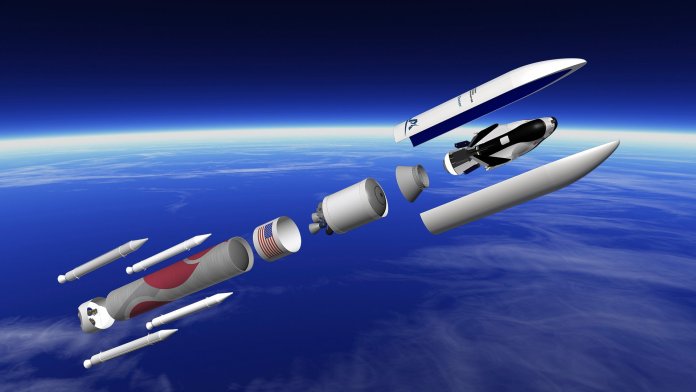United Launch Alliance, a major launch provider to the U.S. government for 14 decades, is on schedule to launch its next-generation competition, the Vulcan Centaur, at early 2021, CEO Tony Bruno explained.
The new rocket was made to offer a more efficient, more powerful launch vehicle than ULA’s workhorse rockets, Atlas and Delta, with motors produced in the United States. Russian rocket motors, which Congress outlawed at a statement in 2014 were previously purchased by the company.
The work around Vulcan proceeds amid a recession and workplace limitations due to this COVID-19 pandemic.
“We chose at the start of March that we were planning to jump on this coronavirus prevention,” Bruno told UPI. “We aren’t really missing any milestones.”
Bruno reported the organization, like most, transitioned to a high level of work where possible, with distancing and sanitation, masks in regions. The end result, he explained, was absences that are much fewer than at a normal flu season.
“Unfortunately, you just can not build a rocket away from the couch in your pajamas,” he joked.
SpaceX became the first private company to send astronauts into orbit in the United States into the International Space Station.
ULA has agreed to purchase engines made by Blue Origin, the BE-4, which gives those 2 businesses a partial alliance at the contest.
The Vulcan rocket being constructed in Decatur, Ala., would offer 1.1 million lbs of thrust with 2 BE-4 engines.
As a private company developing new technology, the organization does not disclose how much it is currently spending on Vulcan growth.
“It generally takes a couple of billion to create a new rocket from scratch. This is mostly completely new,” Bruno said.
Even the Air Force (now Space Force) Space and Missile Systems Center declared in 2019 it might accept just two of the four aircraft systems under development, sooner or later in 2020. Some members of Congress have suggested financing a third company to keep competition.
The government has committed $967 million for the maturation of the rocket via 2024, but it may not ultimately be chosen for assignments. ULA is financing three-quarters of this rocket growth funding, Bruno explained.
Analysts have postulated that ULA and SpaceX will win against the contest, said Marco Caceres, an analyst at the Teal Group.
“ULA is the heritage company that is provided launch service into the Air Force for so long,” Caceres said. “They’ve got an amazing list for efficacy, but they’re still not likely to be more aggressive with SpaceX on cost.”
SpaceX’s big benefit is it is flying the Falcon 9 rocket on many assignments for the authorities, while its three competitors still work on fresh rocket versions. SpaceX says by creating its rocket’s largely reusable, it lowered the cost of launch.
SpaceX simplifies the booster along with the halves, or nose cone, for many slips and reuses those.
ULA includes a plan to reuse the motors by grappling hooks, midair, as they drop back to Earth and grabbing them with helicopters. Caceres said while that has been performed with rocket parts in the past, ULA wants to establish that could work.
“They are attempting to be more reusable, however they do not have that history,” he said. “It is difficult to alter corporate culture overnight, though.”
ULA has two customers signed for Vulcan launches, such as Sierra Nevada, which has developed the Dreamchaser spaceplane to launch cargo.
Analysts believe ULA would fight to bring Vulcan to advertise without the major Space Force contracts, stated Chris Quilty, founder of Quilty Analytics located at the Tampa, Fla., area.
ULA must bring Vulcan to promote quickly and safely Quilty explained.
“Imagine what happens the first time ULA blows up something. The program would shut down for a couple of decades,” he said. “I do not think they have the culture or risk tolerance that would allow them to quickly pivot out of a collapse.”
– Advertisement –
